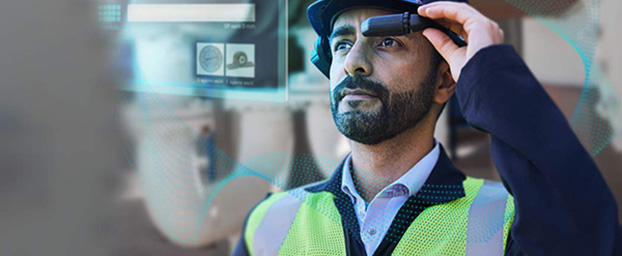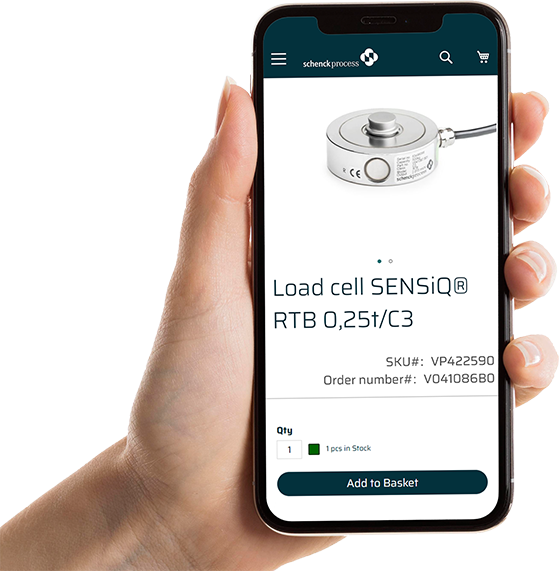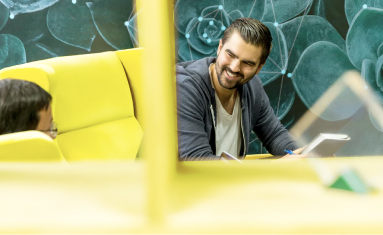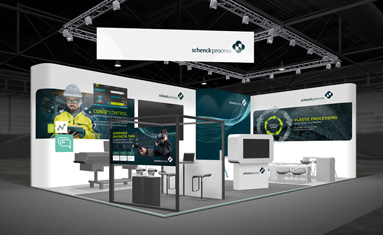Business Continuity Solutions Add Long-Term Value
During the pandemic, when most national and international travel was prohibited Schenck Process sought to develop an alternative approach to its factory acceptance testing process. The aim was to ensure customer orders, which required this service, continued to be fulfilled in a timely, effective manner. Investment in state-of-the-art equipment enabled clients to retain their involvement in factory testing without the necessity of travel. Schenck Process found a successful way to bridge the gap and ensure clients remained able to monitor the full lifecycle of the production process.
Businesses were forced to adapt with the times and whilst many expressed their conviction in Schenck Process’ quality and integrity, it remained important to some that they were able to monitor the production process for themselves and still take part in factory acceptance tests. The development of the Remote Factory Acceptance Testing (RFAT) process ensured business continuity for the client and secured ongoing confidence in their investment. The ability to recognize new opportunities and engage clients in an innovative way, wherever they were in the world was an exciting prospect and one that is likely to continue long after borders have reopened.
Technological Advances Strengthen Customer Support Model
By streaming a two-way video call using an interface such as Microsoft Teams, with a highly knowledgeable team, clients are given the opportunity to make sure all assigned test procedures are met. It promotes confidence that the item delivered is as sold before any expensive costs are incurred. Utilising technology such as static cameras, IP dome cameras, cameras attached to gimbles, along with helmet cameras meant that engineers could become the eyes of the customer viewing every aspect of the acceptance protocol in detail through their eyes.
Schenck Process uses both instrument control cubicles and motor control cubicles to allow the customer to monitor, test, and debug a wide variety of equipment. These cubicles are the brains of the operation, incorporating everything from load cells, transmitters, and motors, right through to frequency converters. By enabling ‘real-time’ data to be viewed and captured, necessary alterations can be made immediately. The team is also able to safely perform, mechanical and electrical checks before dry and wet commissioning is carried out
The Remote Factory Acceptance Testing process reduces the potential for mistakes and eliminates the risk of return delivery due to errors as it ensures specifications are fully adhered to and signed off by both parties. This methodology enables Schenck Process to drive efficiencies for its customers, saving costs, lowering travel emissions, and ensuring high-quality standards are maintained.
Remote Testing Solution Swiftly Introduces Additional Benefits
Once the Schenck Process RFAT process was established, it was quickly realised that the methodology could be utilized to innovate other processes, such as:
Remote Installation Process
There are many advantages to the installation process being completed remotely. The ability to make full use of Schenck Process’ in-house technical capabilities is a major one. Using remote visual assistance technology increases efficiency and allows the client team to focus on workplace safety and operational reliability by directing any complex questions to the experts. By engaging the onsite installation team at each stage of the process, the customer can become comfortable with the machinery upon delivery and confident in the integration of the new equipment.


Remote Training
The ability to eliminate travel costs and save valuable time by conducting remote training has proven to be highly beneficial to several Schenck Process clients already. The client can receive training directly from a team of experts, gaining vital insight into their investment. Online interactive product training can encourage collaboration and be structured around a client’s specific needs. This promotes knowledge transfer and can be delivered in workable segments to anywhere in the world at the customer’s request.
Driving Service Excellence, Innovation, and Cost-Reduction Efforts
Schenck Process’ highly effective remote processes have demonstrated numerous vital benefits already:
- Ensuring high quality standards
- Greater global buy-in
- Reduced commissioning time
- Faster time to market
- Reduced carbon footprint
By investing in its remote capabilities, Schenck Process has demonstrated its ongoing commitment to customer service excellence, driving innovative and cost-effective solutions whilst maintaining quality standards.
Tobias Celik, Project Engineer in Engineering EMEA Screw and Vibratory saw his customers impacted by the pandemic and was instrumental in establishing new testing procedures. “The fact that we can now perform Remote Factory Acceptance Testing is great for our customers. They no longer need to spend long hours on international flights with costly accommodation costs and are still able to see all details they need.”
He continued: “For us, it is a big advantage to receive an acknowledgment of our work, and successfully fulfill our contractual duties to ship the goods and complete the projects on time, even in such challenging and unprecedented situations. I am confident that we will continue to use these new communication technologies in the future to save time and increase efficiencies in the fulfillment of our projects.”
Privacy settings
We use cookies to optimize our website’s functionality and continuously improve your experience.
Some types of cookies are essential to the technical functionality of our website.
Additional cookies are used only with your consent. In this context, we use Google Analytics in the anonymized version to access, analyze, and save information, such as the characteristics of your device and certain personal data (IP addresses, navigation usage, geolocation data, or unique identification features. (YouTube, FB, etc.))
With regard to the processing of your data in the USA by Google: By clicking on [“Agree to all”], you also consent to the processing of your data in the USA in accordance with Article 49 (1) (a) of the GDPR. According to the European Court of Justice’s current case law, the USA is assessed as a country with an inadequate level of data protection by EU standards. In particular, there is a risk that your data could be processed by US authorities without you becoming aware of it or having access to legal remedy. If you click on [“Save preferences”] without having selected “Analytics”, the transfer of data described above will not take place. Further information can be found in our data protection information.








